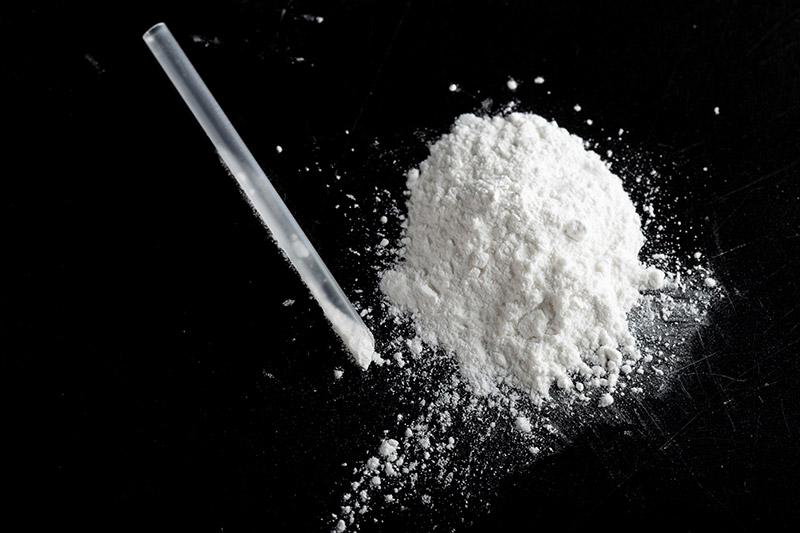Ketamine Addiction & Abuse
Ketamine can distort your perception of sights, sounds as well as produces feelings of detachment (dissociation) from the environment and yourself, it is very often used as a party drug, as well as in isolation. Ketamine is also used as a strong pain-blocker increasing your feelings of being numb and alleviating pain in chronic pain sufferers.
Since the symptoms of use are not long-lasting, families and loved ones of ketamine users may have to use other signs and symptoms to detect abuse.
(https://www.narconon.org.uk/drug-abuse/ketamine-signs-symptoms.html)
What is Ketamine Addiction?
Ketamine is available as an anaesthetic for animals and people through veterinary clinics and hospitals, the rise in abuse of ketamine in the UK has enabled the black market to obtain it illegally either through theft from a vet’s office or even across the ocean in Mexico. Some of the street names are:
- Donkey Dust
- Green
- K
- Ket
- Special K
- Super K
- Vitamin K
- Wonk
Ketamine addiction is the inability to stop using ketamine, despite negative consequences to ones health, finances or relationships. Those addicted to ketamine are driven by impulse to use it, often multiple times a day, as a way of escaping reality, negative thinking, trauma and and/or anxiety. Ketamine addiction is different to ketamine abuse, which is associated with parties, raves and weekend benders.
Ketamine Addiction VS. Abuse
Any usage of medication or substances as a party drug or outside of their intended use is known as abuse or misuse. The more you use ketamine or the higher the doses you begin to use, the more symptoms will begin to appear:
- Unusual mellowness
- Changes in perceptions of colour or sound
- Dissociation from body or identity
- Agitation
- Depression
- Difficulty thinking or learning
- Nausea
- Dilated pupils
- Involuntary muscle movements
- Amnesia
- Slowed breathing
- Increased blood pressure that then slowly drops
- Hallucinations
- Delirium
The more you abuse ketamine, the higher the risk of developing addiction. While you or someone you love may have started using ketamine recreational, it can develop into ketamine addiction.
What Makes Ketamine Addictive?
Once enough ketamine has been ingested to experience a condition of complete dissociation from body or environment, you may be unable to respond to voices, lights, or other stimuli. This condition may last for an hour or less and then begin to fade away. Ketamine is also a pain blocker and in cases where chronic pain has developed, ketamine use can seem enticing.
Chronic use of ketamine can lead to periods of amnesia, depression, and an inability to retain knowledge, this psychological dependence and the ensuing cravings, can lead to crime, with ensuing guilt and a further need to numb your feelings or disassociate from yourself through more use of ketamine. This cycle of self-medicating may lead to addiction over time.

How Ketamine Addiction Develops
Whilst ketamine is known as a ‘party drug’ in some instances, tolerance can build up leading to higher and higher doses more regularly needing to be taken. How addiction occurs in you may be dependent or the result of these factors:
Repeat Exposure
As with many substance use disorders, the repeated, regular use of ketamine may lead to abuse and addiction. Although the availability or ease of sourcing a ketamine supplier is not as easy as with other medications (simply asking for a script from your GP won’t yield much luck) having friends or associates that have the same interest in using ketamine socially may entice you to start using it outside of social situations.
Trauma & Pre-existing Mental Health Conditions
There is a lot of studies and evidence of the link between trauma (especially experienced during childhood) and substance abuse, Post Traumatic Stress Disorder from physical, sexual, and emotional abuse in childhood also increases your susceptibility to mental health illnesses like, schizophrenia, major depression, and bipolar disorder which can lead to substance abuse in teens and young adults.
Family History of Drug or Alcohol Misuse
Whilst neurological and physical effects of addiction have been widely documented and studied, the genetic risk factors for ketamine abuse in genetics remain challenging and often contradictory.
The ‘Nature vs Nurture’ saying is better phrased as a ‘Nature and Nurture’ in the case of addiction as research has shown a strong correlation between the environment you grew up in (family, social, education & economic) and the actual gene sequencing within your body.
Generally, positive family influences, such as family bonding and consistent rules, appear to reduce the risk of drug abuse among teens, while negative family influences tend to increase risk. The same is true of positive and negative peer factors and community involvement in the development of healthy activities for children to alleviate boredom and experimentation with substances.
(https://www.drugabuse.gov/publications/drugfacts/genetics-epigenetics-addiction)
Enter your phone number below and one of our qualified addiction specialists will get in touch to discuss your options.

Signs & Symptoms of Ketamine Addiction
Ketamine use produces very pronounced symptoms that are hard to miss:
- Being very mellow or relaxed
- Dilated pupils
- Amnesia
- Slowed breathing
- Difficulty with learning, thinking, and recollection
- Involuntary muscle movements
- Persistent urinary tract infections
These pronounced signs may have led you to keep your use out of sight from those around you, and since the symptoms were not long-lasting your family may have stayed in the dark as to your addiction for a while. But other signs may start to emerge as your addiction grows:
- Unproductive at home or work
- Self-isolation
- Loss of enjoyment and interest in what used to bring you pleasure
- Loss of control
- Depression
- Inability to stay away from Ketamine
- Ignoring the risks you are taking whilst using ketamine
Diagnosing Ketamine Addiction
Since the effects of Ketamine use is short-lived, diagnosing your addiction will generally follow the DAST-10 (Drug Abuse Screening Test) questionnaire and assessment from your medical provider or chosen treatment centre:
- Full mental health assessment.
- Full risk assessment.
- What substance(s) is the individual using?
- In what quantities?
- How frequently?
- By what route (smoking, injecting, swallowing)?
- How long has the individual been using for?
- Does the service user recognise this use as problematic?
(https://www.rdash.nhs.uk/wp-content/uploads/2014/04/DAST-10-Policy-v3.2.pdf)
The Dangers of Ketamine Addiction
If you take too much ketamine you may lose the ability to move and go into a ‘k-hole’. This feels like your mind and body have separated and you can’t do anything about it – which can be a very scary experience. The numbness you may feel in your body can put you at risk of hurting yourself without realising it.
Regular ketamine use can also cause:
- Damage to your urinary system, especially your bladder
- Abdominal cramps “k-cramps”
- Gastritis
- Peptic Ulcer Disease
- Cholangiopathy (a disease in the bile ducts)
- Liver Fibrosis
(https://clinicaltrials.gov/ct2/show/NCT02165488)
- agitation
- panic attacks
- damage to short- and long-term memory
- depression, if taken frequently
- Inability to move
- Uncoordinated or slower movement
Tripping on ketamine can be an utterly overwhelming experience, especially if the user does not expect its powerful effects. This can be severely traumatic to experience and cause anxiety attacks and extreme agitation. (https://www.drugscience.org.uk/drug-information/ketamine/#1614728610620-c5a2ec04-e4fc)
Ketamine Use in Teens
Teenagers and young adults seem to represent the majority of ketamine abusers worldwide, and early exposure to ketamine (even if in a medical setting as treatment or as an anesthetic) can increase future risks of substance use disorder of other drugs or medications.
(https://www.justice.gov/archive/ndic/pubs4/4769/index.htm#Who%20uses)
Ketamine Use in Pregnancy
Ketamine can pass the blood-placental barrier and has shown effects on the development of immature brains in fetuses. In addition to the risk during pregnancy, ketamine is also passed through the breastmilk to a breastfeeding baby or infant and can alter brain development.
(https://www.frontiersin.org/articles/10.3389/fnins.2019.00138/full)
When genetic risk factors are combined with lifestyle or environmental triggers there is a higher vulnerability to developing an addiction or substance use disorder. Research also suggests that genetic factors play an important role in the way one interacts with their environment, which places such individuals at a higher risk of addictions.
Ketamine Use and Employment
Whilst use of Ketamine is often in a party setting, should your users have started to impact your everyday life, your employment could be at risk, this is because the anesthetic effects will induce a non-productive attitude towards work, as well as a risk of injury to you or others.
Mixing Ketamine with Other Drugs
Taking ketamine with depressants (such as alcohol, GBL, benzodiazepines such as valium, or opiates such as heroin) may cause you to become unconscious quickly and unexpectedly, and can suppress or even stop your breathing or allow you to suffocate on your vomit.
Taking ketamine with stimulants (such as cocaine and ecstasy) may overload your heart, increase agitation and anxiety and the additional stimulants may keep you moving when the effects of ketamine would otherwise have immobilised you, increasing your chance of accidental injury.
Getting Help for Ketamine Addiction
If you feel that you are at risk of becoming addicted or are already addicted to ketamine, reaching out for help to quit you can start with your GP, he will be able to medically assess you and recommend the options available to you and refer you to the nearest NHS drug service, if talking to your GP isn’t an option, you can contact our helpline for advice and assistance with finding a Detox and Rehab treatment centre in your area.
Residential rehabilitation is beneficial to the treatment of addiction, receiving medical supervision where your unique needs are taken into consideration when structuring a treatment plan.
Your treatment may include a combination of medical care, psychiatric services, counselling, behavioral therapy, vocational training, and other services to best support the whole of you throughout recovery.

In cases where a Dual Diagnosis (addiction co-occurring with mental illness) or poly-drug abuse is an issue, they need to be treated concurrently for the best outcome.
Currently, behavioral therapies have proven to be the most effective:
Cognitive Behavioral Therapy: this type of therapy helps you to recognize your reactions to environmental, emotional stresses by focusing on learning new ways to cope with the stresses and triggers in your life without Meth.
The Matrix Model: A 16-week treatment approach that combines the above behavioural therapy, a 12 step programme, family education, counselling, and promoting activities that are not drug-related.
Contingency Management Intervention: Reward-based treatment offering incentives like gift cards etc for staying drug-free.
The NHS also offers outpatient care for the treatment of addiction. But there can be waiting lists before you may start treatment, if you require urgent admission, contact us and we will help you find the right private treatment centre for your needs. Charity and non-profit organisations also have treatment options available, but there may also be waiting lists to join.
There are also counselling groups available for yourself and support groups for your loved ones if needed. The treatment centre you choose will be able to assist you with finding the best support groups in your area.
Fortunately, an addiction does not mean the end of the road. Even if you have sought treatment and experienced a relapse, there is still opportunity to work towards taking your life and your health back. The sooner you feel there is a problem, the easier it will be to find the help that you need.

